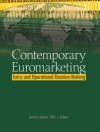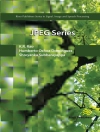The fall of the Soviet Union was a transformative event for the national political economies of Eastern Europe, leading not only to new regimes of ownership and development but to dramatic changes in the natural world itself. This painstakingly researched volume focuses on the emblematic case of postsocialist Romania, in which the transition from collectivization to privatization profoundly reshaped the nation’s forests, farmlands, and rivers. From bureaucrats abetting illegal deforestation to peasants opposing government agricultural policies, it reveals the social and political mechanisms by which neoliberalism was introduced into the Romanian landscape.
Table of Content
List of Illustrations
List of Figures
Preface
List of Abbreviations
Introduction: Privatizing the State and the Transformation of the Agrarian Landscape
Chapter 1. Dragomiresti and Dragova: Two Centuries of Ecological and Socio-economic Transformations
Chapter 2. Postsocialism as Neoliberalism: Reorganizing Society and Nature
Chapter 3. Bureaucrats, Patronage, Illegal Logging
Chapter 4. Contested Forest
Chapter 5. Waning Pastures
Chapter 6. Fragmented Lands
Chapter 7. Wasted Rivers
Conclusion: A Disrupted Landscape
References
Index
About the author
Stefan Dorondel is a Senior Researcher at the Francisc Rainer Institute of Anthropology Bucharest. He holds doctorates in History and Ethnology from Lucian Blaga University of Sibiu, Romania, and in Agricultural Economics from Humboldt University Berlin. His publications include the co-edited volume At the Margins of History: The Agrarian Question in Southeast Europe (2014).












